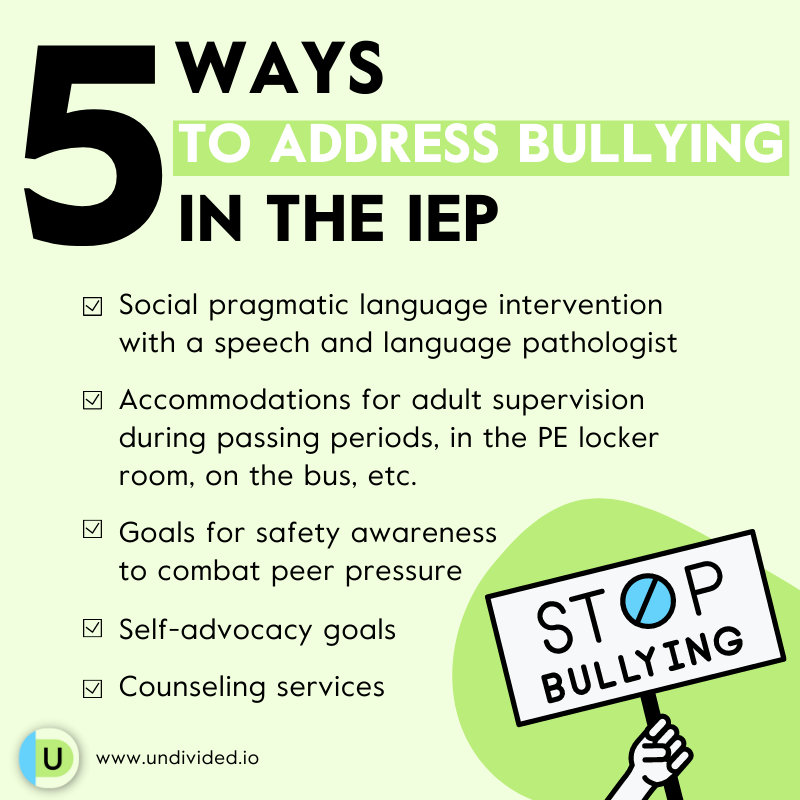How can an IEP stop bullying at school?
While there is plenty of information out there about how to help your student self-advocate and how to protect them from being bullied, some of it may sound better in theory than it is in practice. Dr. Sarah Pelangka recommends the following practical ways in which a student can be supported through their IEP to help them better recognize and respond to bullying behavior:
Address the need through social pragmatic language intervention with a speech and language pathologist. If your child struggles with identifying social cues and differentiating between bullying and light humor, this may be an area of need, and working on their social pragmatic deficits can support them in the first step: identifying that they are in fact being bullied (verbally).
If a student is struggling with self-advocacy and/or self-concept as a result of bullying, this can be supported by adding in self-advocacy goals, and possibly adding in counseling services, to support that area of need.
- Many students — particularly those on the autism spectrum — may fall victim to peer pressure and poor social influences, which can be used by bullies; their peers may intentionally tell them to do things that are unsafe or embarrassing. This can be addressed by adding safety awareness and/or social pragmatic goals to the IEP, service minutes to support that, and accommodations such as but not limited to:
- Adult supervision during unstructured times/passing periods (however, make sure you consider your child's need for autonomy and independence)
- Adult supervision in PE locker room and having a PE locker near the PE teacher area
- Access to safe space on campus such as a teacher or counselor they can always go to
- Parents also need to be mindful of bullying behavior taking place on the bus. The student can sit directly behind the driver as an accommodation.
“Personally,” Dr. Pelangka says, “I believe the best defense against bullying is psychoeducation: informing the larger student population about differences and encouraging an inclusive mindset. Parents can have on-site ability awareness trainings — where professionals go in and educate students (and staff) on the various differences and abilities that students at their schools may have — written into their child’s IEP to help promote this practice."
For more information, check out our article Bullying and Kids with Disabilities.
Join for free
Save your favorite resources and access a custom Roadmap.
Get Started


